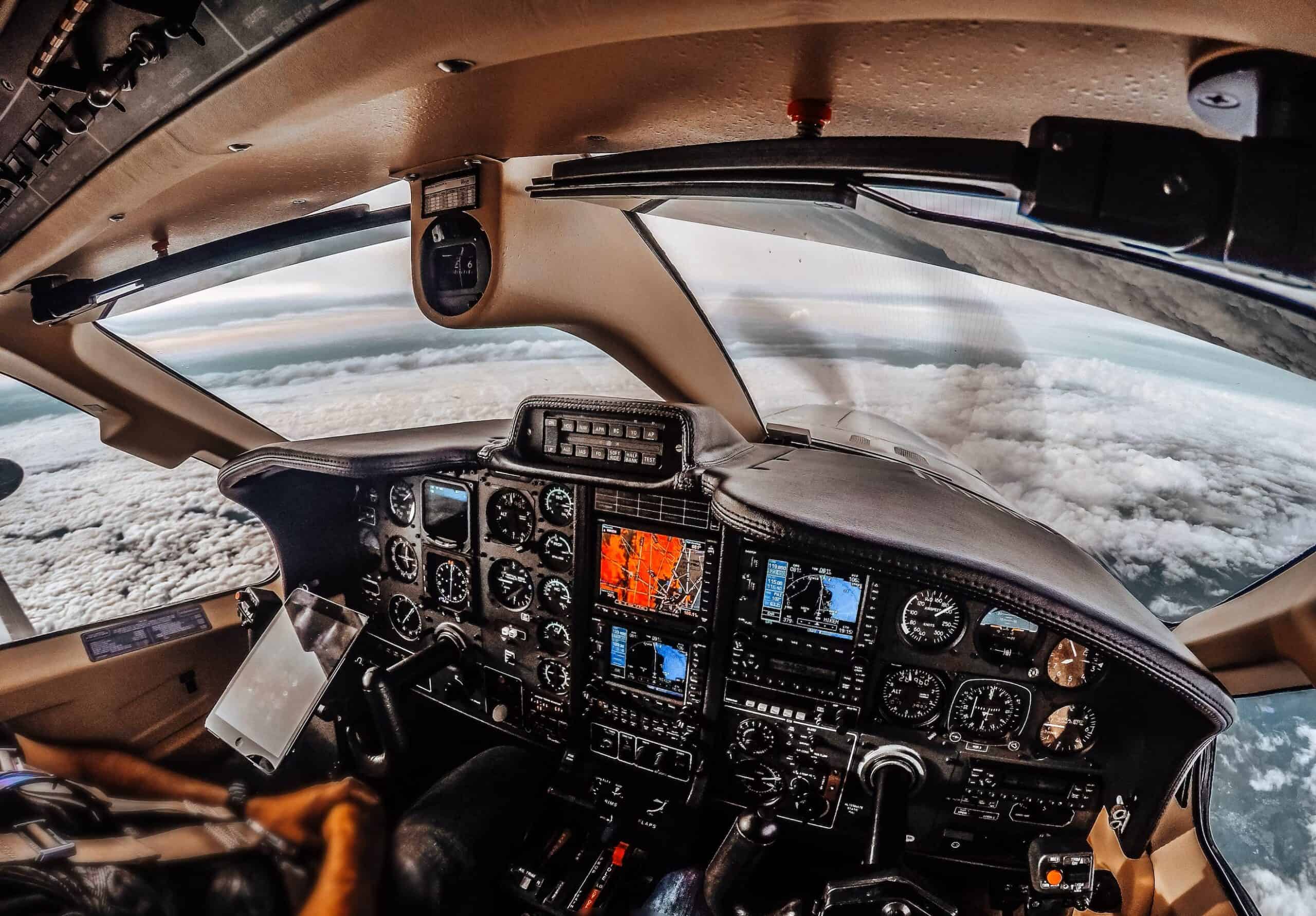I like flying less and less. Perhaps it is because I am getting older, but the thrill I once had of “getting away” no longer holds much luster. Airport trips, I now realize, require me to arrive early – which I do not tend to do – only to wait – which I often struggle with – and then wait some more – whether it is taxiing to the gate or waiting for those in front of me to grab their items from the overhead bin.
Of course, all of these frustrations evaporate in the case of a private jet. My uncle is a pilot, and I once had the opportunity to fly with him. Beyond the punch code to gain access to the airfield, there was no security, no lines, no tickets, no IDs, no food courts, or duty-free stores to maze through to find a gate at the opposite end of the terminal or airport. The plane was waiting for us, rather than the other way around.
The cockpit still fascinates me. With so many controls and so much information, it is no wonder why so much training is required. This is the image I have in prayer, in discernment, in my faith life. What should I say? What should I do? How do I know? As much as we may feel we are spinning our wheels in our studies, jobs, or relationships, so much is left up to us. Our lives are not equipped with an autopilot option.
Where do we get our information to discern the right path? How do we know where to even look? Do we have to wait for an alarm to sound, or are we attentive enough to predict and foresee problems before they arise? How do we respond? God has created us to be pilots, not puppets.
I was surprised by the amount of information required before takeoff with my uncle. He asked me how much I weighed and then told me where to sit in the plane to balance it out among the other passengers. Pilots do not take off solely thinking of their intended destination but must know alternative airports should something go wrong. How often does my tunnel vision block me from seeing the other options that are available to me?
Pilots also do not do this alone. They may, at times, fly alone, but even then, help is needed to depart and arrive safely. The control tower and air traffic control provide the instructions and necessary clearance to fly. Do I allow others to assist me when I need it?
It is in the case of stormy weather that the greatest comparison to the spiritual life is made clear. Flying a plane is not like driving a car or boat. Eyes are not merely fixed on the road or waters ahead but the conditions in front, above, and surrounding the pilot. In the instance of heavy winds, the focus ought to be on the control that reads the pitch of the plane, indicating where the horizon is. Otherwise, a pilot could get confused between what is up and down, losing the horizon.
Who or what is the equivalent in my spiritual life or prayer? It could be a promotion at work, a search for the ideal spouse, the perfect home, the next car, or the next vacation spot. These are all good things, but they may not ultimately get us to our intended destination. We may find they help get us “off the ground” or “into the air,” but after a time, our horizon needs a reset. Where do you look in these cases?
Who or what is my principal focus in life? Can we imagine a scope that draws us ever closer to Jesus? What might it look like, and how would it be measured or calculated? This month, which invites us all into holiness, may be the perfect time to do a control check, a system reset, or a mechanical overhaul.


